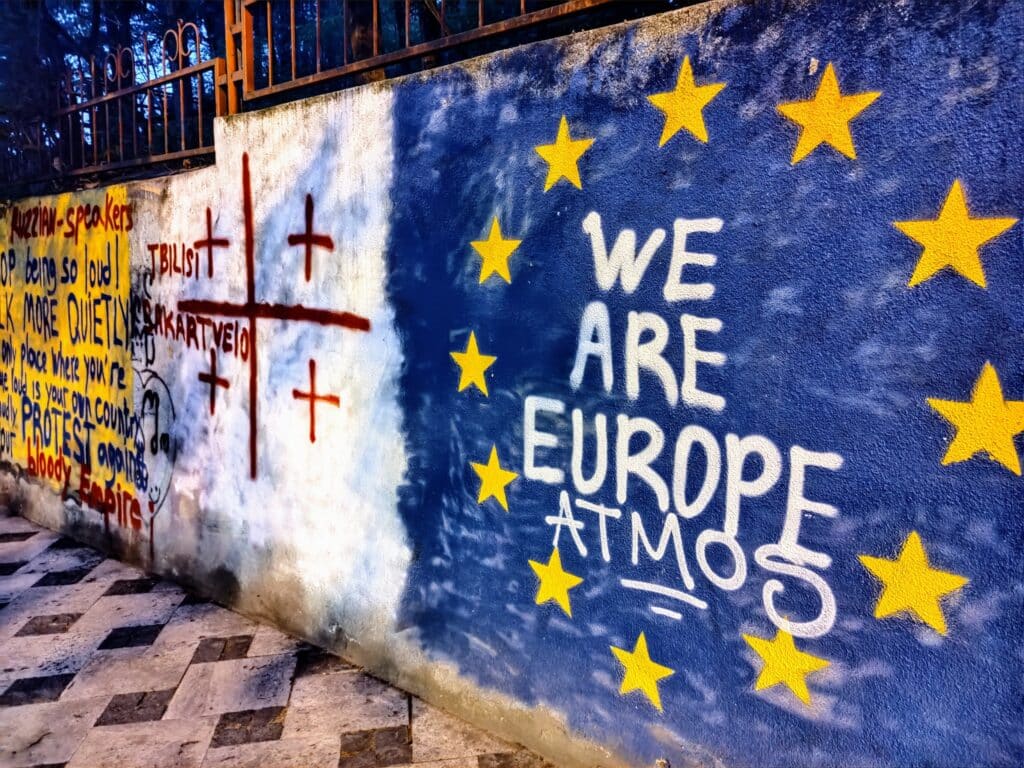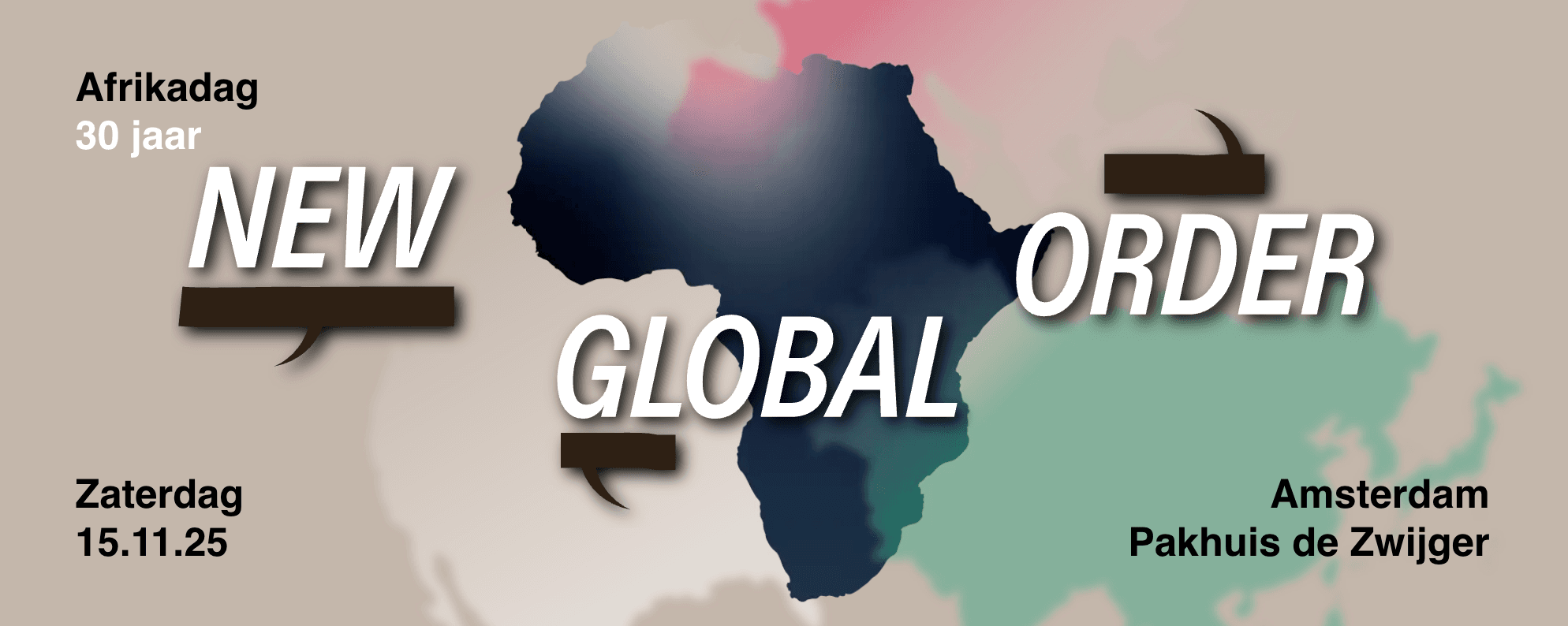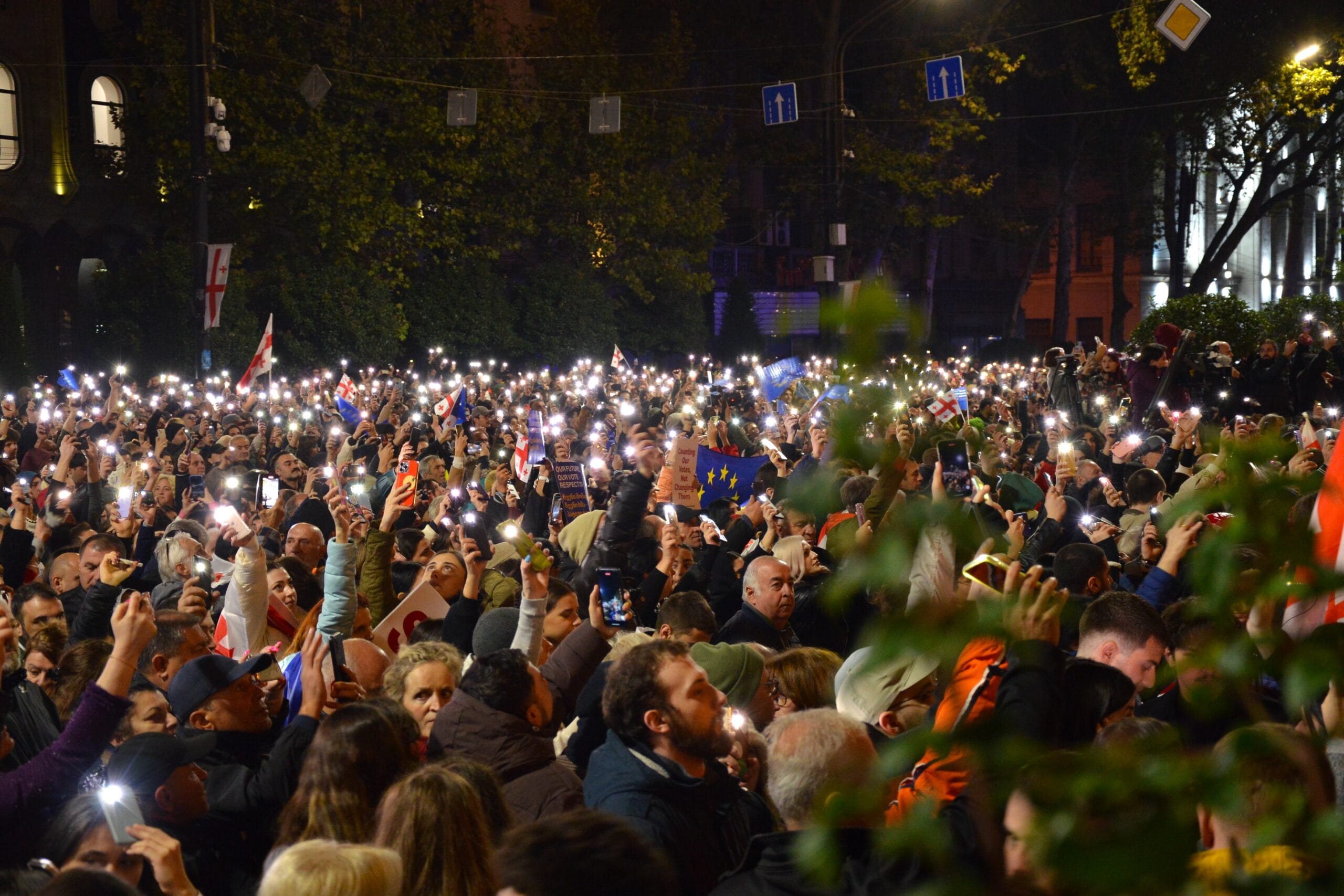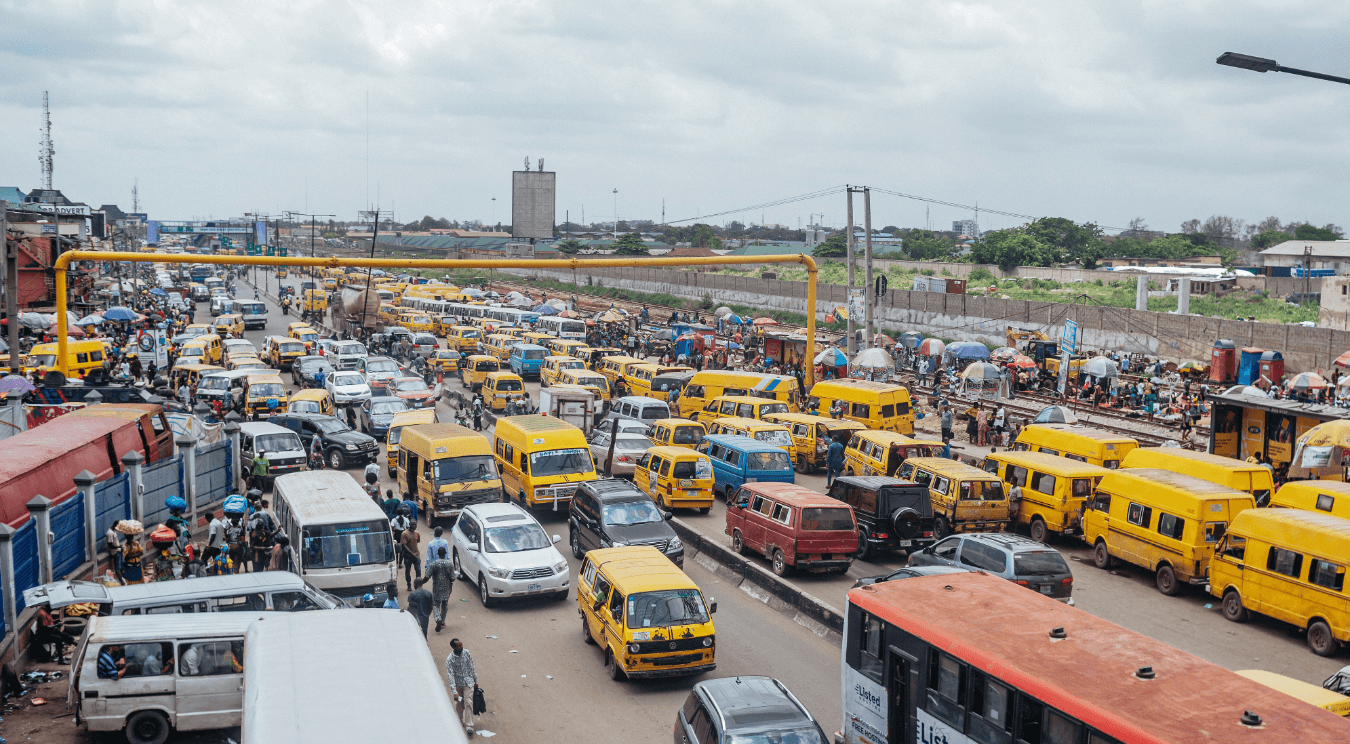Photo: Graffiti in Tbilisi in April-May 2024 (source: Jelger Groeneveld, Flickr)
On 3 June, the infamous law on foreign agents officially passed by the Georgian parliament. A final attempt to stop the law by Saloma Zourabichvili, the Georgian president who is EU-friendly, was rejected by the Georgian Dream parliamentary majority. The law, which is very similar to Russia's foreign agents law, requires all civil society organisations that receive more than 20% of their funding from abroad to register as 'pursuing the interests of a foreign power'. Critics expect the law to restrict media freedom and help the government silence civil society.
The new law was reintroduced in April, after a failed attempt in 2023. Since then, massive protests took place, mainly in the capital Tbilisi, with tens of thousands of Georgians taking to the streets for weeks. FMS trainer Rowdy Boeyink has just returned from Georgia and talks about his experiences in the country at this time of great political unrest. He experienced "a mood of hope and anger. Hope because people still believed in joining the EU, anger because people were genuinely surprised by the reintroduction of the new law and saw their hopes dwindling.'
The atmosphere
Although the protests in Tbilisi had been going on for weeks, the city seemed relatively calm. 'I had expected a more tense atmosphere in the city, but in many places it was business as usual,' says Boeyink. 'You do see a lot of stalls selling EU flags, socks and things like that around the national parliament. Everything there revolves around the EU,' he adds.
But if you pay close attention, you will see signs of protest everywhere in the city. You see references to what is happening everywhere, both pro-EU and anti-Russian graffiti is prominent throughout the city. Both Russian political influence and the mass immigration of Russians, which caused rents to skyrocket in the city, have caused discontent among the population. Many Russians use Georgia as a safe haven to sit out what Boeyink calls Russia's 'Putin winter'.
The protests
Demonstrators may have hoped that the ruling Georgian Dream (GD) party would back down from large-scale protests, as it did last year. But the party, led by notorious billionaire Bidzina Ivanishvili, decided to do it all over again. Despite a presidential veto the law was pushed through parliament. Protests were violently suppressed by riot police wearing ominous white tear gas masks. As we walked away from the protest, we saw hundreds of riot police getting ready to face the protesters. 'If you consider that Georgia only has a riot police force of about 500, it looked like at least 80% of them had been called in to quell the protests in Tbilisi,' says Boeyink.
When he attended several of these protests, he noted that "they (the protests, ed.) are really led by civil society actors, artists and writers. Not by members of the political opposition, because the image of Georgian politics remains seriously tarnished among the population." Although young people are very involved in the demonstrations, "you really see young and old, male and female. People from all over Tbilisi seem to have come to protest."
Application of the law
The way GD has rushed the new law through parliament suggests that they want to start enforcing it as soon as possible. Whether they have the resources to do so remains to be seen. According to Boeyink, "the police force is relatively small and not yet reformed to the extent that it can enforce such a law. The repressive police force under Saakashvili was dismantled and it will take some time to re-establish such a system. There is hope among civil society that it will take until the elections before the police are ready to enforce effectively. This will hopefully give Georgian civil society a chance to campaign against Georgian Dream without too much government interference.
Upcoming elections and divided opposition
Parliamentary elections are scheduled for 26 October this year and are likely to be a decisive moment for both GD and the opposition. In granting Georgia candidate status, the EU has "rewarded the majority of the population seeking accession, while exposing GD as not really in line with EU membership". If GD succeeds in retaining its majority, it will almost certainly continue on the path it has taken, putting "Georgia's accession to the EU on the back burner for at least the next 15 to 20 years", Boeyink said.
For the opposition, which is notoriously divisive, this is the time to emerge as a united force against Russian influence and in favour of joining the European Union. 'It really depends on the opposition's ability to work together with the protesters, but also with each other,' Boeyink said. However, uniting the opposition is easier said than done. The United National Movement (UNM), the largest opposition party, is still strongly associated with the authoritarian practices of its leader and former president of Georgia Mikhail Saakashvili. The FMS trainer sees this as highly problematic because "parties that try to exploit their discontent with the established political parties by jumping into the gap between GD and UNM could undermine the overall cohesion of the opposition".
In addition, it remains to be seen whether the elections will be fair. Boeyink worries because "GD has penetrated deep into Georgian society and strategically appointed loyalists within the school system, the police, the healthcare system and many other places. If ever there was a time for the Georgian opposition to put aside personal quarrels and work towards a multi-party democracy, it is now. With four months to go, it is crucial to seek cooperation with civil society organisations and keep the momentum of the protests alive.




